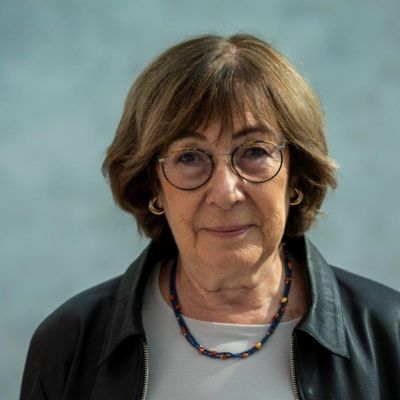"Be gone, ghosts!": After the death of her husband, Anna travels from Berlin to the Greek island of Symi and the house of her deceased grandparents. There she plans to sell the house and yet soon finds herself increasingly confronted with memories from her family’s past.
In the 15th century the Sephardic Jews were expelled from Spain; subsequently, they settled in Turkey, North Africa and Greece. Some Greek Jews were able to flee from National Socialism in the 1940s; these included Anna's father, who met her Spanish mother whilst in exile in London. With this film the director narrates part of this chapter from European-Jewish history by drawing on the example of Anna's ancestors. Jeanine Meerapfel also explores questions of memory. Anna's memories of the past are not linear. Rather, it is places, language and objects that enable her to imagine the past in the present. Grief, pain of loss and also joy coexist in this film captured to a backdrop of scenic beauty.
Jeanine Meerapfel welcomes you to the screening of her film Anna's Summer on 19.6 at 21.00 in the MS Goldberg and tells you something about her film in advance.
Credits
original title Annas Sommer
international title Anna's Summer
german title Annas Sommer
JFBB section Hommage: Jeanine Meerapfel
country/countries DE/GR/ES
year 2001
duration 107 Min
Jeanine Meerapfel
BIO In her works, director Jeanine Meerapfel not only deals with her own German-Argentinean family biography, but also finds a language through her films with which she gives expression to feelings of un-/belonging and questions about her own identity and origins. She was born in 1943 as the daughter of German-Jewish emigrants in the Argentine capital Buenos Aires. After completing her studies in journalism, she came to Germany in 1964. She studied at the Institute for Film Design ("Institut für Filmgestaltung") in Ulm, among others with Alexander Kluge, who is still one of the most influential representatives of New German Cinema.
Against the backdrop of current political and social debates, Jeanine Meerapfel's films are still highly topical today: themes such as migration, experiences of flight and exile find their way into her films, as does the critical examination of the acute dangers of anti-Semitism and xenophobia.





